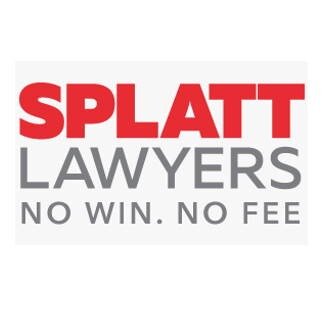Best General Litigation Lawyers in Gold Coast
Share your needs with us, get contacted by law firms.
Free. Takes 2 min.
List of the best lawyers in Gold Coast, Australia
About Litigation Law in Gold Coast, Australia
Litigation law in Gold Coast, Australia refers to the legal process of resolving disputes through the court system. It involves filing or defending a lawsuit to protect one's rights or seek compensation for damages. This area of law covers a wide range of legal issues, including contract disputes, personal injury claims, family law matters, and more.
Why You May Need a Lawyer
There are several common situations where you may need a lawyer in the field of litigation:
- If you have been served with a lawsuit or have a legal claim against someone else
- If you are involved in a contract dispute and need assistance in negotiating or litigating the matter
- If you have suffered injuries due to someone else's negligence and want to pursue a personal injury claim
- If you are going through a divorce or child custody dispute and need legal representation
- If you need assistance with debt recovery or bankruptcy proceedings
Local Laws Overview
In Gold Coast, Australia, litigation is governed by both state and federal laws. Some key aspects of local laws that are particularly relevant to litigation include:
- The Queensland Civil and Administrative Tribunal (QCAT) is a key tribunal for resolving civil disputes with a monetary value up to a certain limit
- The Federal Court of Australia and the Supreme Court of Queensland handle more complex and high-value litigation matters
- There are specific laws and procedures that must be followed when filing or defending a lawsuit, including strict time limits and requirements for document disclosure
- Alternative dispute resolution methods, such as mediation and arbitration, may be available to resolve disputes outside of court
Frequently Asked Questions
1. How long does litigation usually take?
The duration of litigation varies depending on the complexity of the case and the court's caseload. Some cases may settle quickly, while others can take months or even years to reach a resolution.
2. How much will hiring a lawyer for litigation cost?
The cost of hiring a lawyer for litigation can vary based on factors such as the lawyer's experience, the complexity of the case, and the amount of time and resources required. It is advisable to discuss fees and payment arrangements with your lawyer before engaging their services.
3. Can I represent myself in litigation?
While it is possible to represent yourself in litigation, it is generally not recommended, especially for complex cases. Lawyers have extensive knowledge of the law and courtroom procedures, which can greatly enhance your chances of success.
4. What are the alternatives to litigation?
Alternative dispute resolution methods, such as mediation and arbitration, offer alternatives to traditional litigation. These processes focus on reaching a mutually acceptable agreement without going to court.
5. How can I find the right litigation lawyer for my case?
It is essential to find a lawyer with expertise in the specific area of litigation that relates to your case. You can seek recommendations from friends, family, or legal directories. It is also important to arrange a consultation to discuss your case and assess if the lawyer is the right fit for you.
Additional Resources
If you need additional information or resources related to litigation in Gold Coast, Australia, you may find the following helpful:
- Queensland Courts: https://www.courts.qld.gov.au/
- Queensland Civil and Administrative Tribunal (QCAT): https://www.qcat.qld.gov.au/
- Australian Disputes Centre: https://www.disputescentre.com.au/
Next Steps
If you require legal assistance in litigation, follow these steps:
- Identify the specific area of litigation that your case falls under
- Research and contact lawyers with expertise in that area
- Schedule consultations to discuss your case and assess the lawyer's suitability
- Hire a lawyer who meets your requirements and can effectively represent your interests
- Work closely with your lawyer throughout the litigation process, providing all necessary information and documentation
Lawzana helps you find the best lawyers and law firms in Gold Coast through a curated and pre-screened list of qualified legal professionals. Our platform offers rankings and detailed profiles of attorneys and law firms, allowing you to compare based on practice areas, including General Litigation, experience, and client feedback.
Each profile includes a description of the firm's areas of practice, client reviews, team members and partners, year of establishment, spoken languages, office locations, contact information, social media presence, and any published articles or resources. Most firms on our platform speak English and are experienced in both local and international legal matters.
Get a quote from top-rated law firms in Gold Coast, Australia — quickly, securely, and without unnecessary hassle.
Disclaimer:
The information provided on this page is for general informational purposes only and does not constitute legal advice. While we strive to ensure the accuracy and relevance of the content, legal information may change over time, and interpretations of the law can vary. You should always consult with a qualified legal professional for advice specific to your situation.
We disclaim all liability for actions taken or not taken based on the content of this page. If you believe any information is incorrect or outdated, please contact us, and we will review and update it where appropriate.








